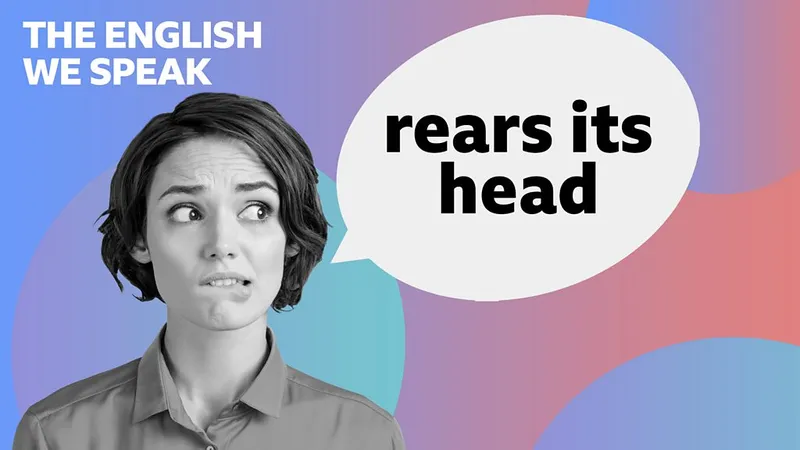Feifei Hello and welcome to The English We Speak, with me Feifei…
Phil And me, Phil. We have an expression which is about a bad thing appearing or starting to happen. It’s ‘rear its head’.
Feifei ‘Rear its head’. I think we need to hear this one. Can you give us an example of how we use it?
Phil OK. I bought a new computer last week!
Feifei That sounds great!
Phil No, not great. I can’t get it to work properly. The speakers don’t work, it has a virus. Every time I think I’ve fixed it, a new problem rears its head!
Feifei Oh no. That’s typical, isn’t it? I always find when I need to do something important, IT problems rear their heads.
Phil I’m learning that I need to be better prepared so that when any problems rear their ugly heads, I can sort them out.
Feifei Well, it’s always good to be prepared! Let’s listen to these examples.
Examples Attendance on the course was good until colds and flu reared their heads in the winter.
I was working outside until the wet weather reared its head and I had to go inside.
Food prices were going down, until drought reared its ugly head.
Feifei You’re listening to The English We Speak from BBC Learning English, and we are learning the expression ‘rear its head’. It’s used to talk about something bad appearing, and as you may have heard in one of the examples, we can also say ‘rear its ugly head’.
Phil Yes, we don’t use it to talk about good things; it’s always problems that rear their ugly heads.
Feifei And I think the end of this programme is rearing its ugly head now. So, we have to end here.
Phil Yes, we’ll see you next time! Bye!
Feifei Bye!
